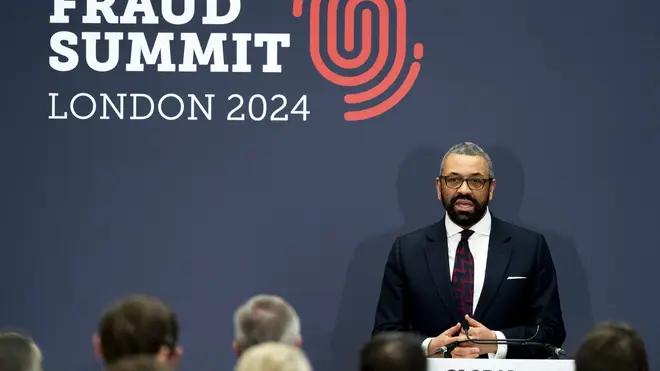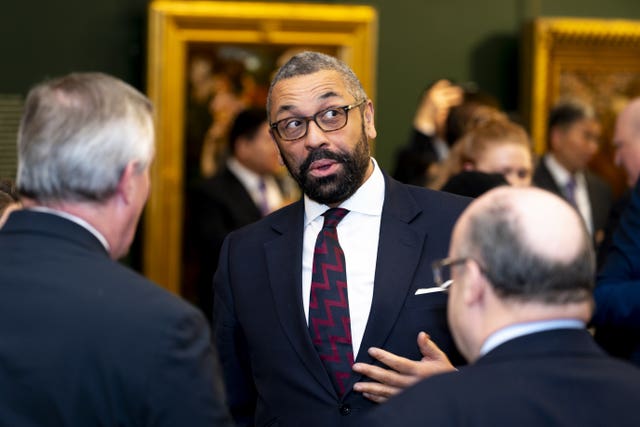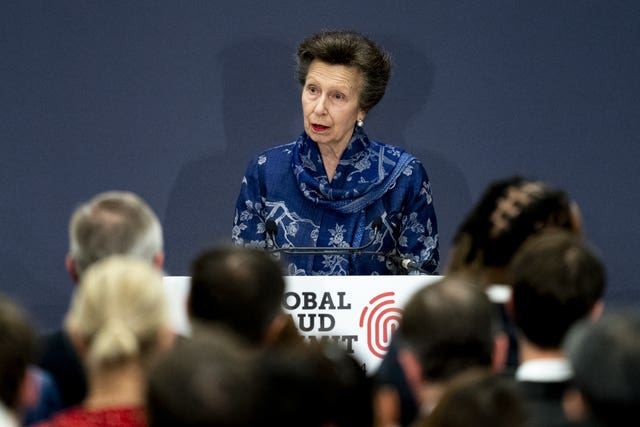
Henry Riley 7pm - 10pm
11 March 2024, 11:44

The global summit is aimed at ensuring there are no ‘safe havens’ for scammers.
International action to tackle fraudsters is to be discussed by ministers, financial organisations and tech giants from around the world at a summit in London.
Interpol’s general secretary Jurgen Stock said cross-border co-operation was needed to ensure there are “no safe havens for financial fraudsters”.
Representatives from the governments of the Five Eyes intelligence partnership – the UK, US, Canada, Australia and New Zealand – will be among those attending the Lancaster House summit.
Other nations involved include France, Germany, Italy, Japan, Singapore and South Korea.
Tech firms including Amazon, Apple, Google, Meta, TikTok and LinkedIn will also be at the gathering, along with financial sector organisations including HSBC, NatWest, Santander, Visa and national and international banking associations.

A forthcoming Interpol threat assessment is expected to show a concerning rise in fraud in all corners of the globe.
Mr Stock said: “Changes in technology and the rapid increase in the scale and volume of organised crime has driven the creation of a range of new ways to defraud innocent people, business and even governments. Urgent action is required.
“It is important that there are no safe havens for financial fraudsters to operate.”
Around 70% of fraud offences in the UK have ties to international criminals, with £3 billion lost to overseas accounts last year.
Interpol has warned that fraud is often perpetrated by organised criminal groups, including human traffickers, who force people to work in scam centres which target potential victims across the world.
Home Secretary James Cleverly said: “Fraudsters have no regard for boundaries, they devastate citizens in all our countries.
“We will only put a stop to this scourge if we fight it head-on together and that’s precisely what we plan to do.”
Mr Cleverly told attendees on Sunday night: “Fraud is often an overlooked crime. It often happens invisibly, it often happens in a way that the victim is unaware of.
“Victims can feel too embarrassed to do anything about it, perhaps feeling that they are foolish, and they somehow deserve what has happened to them.
“This is the first time we are meeting formally internationally to work on how we fight fraud, how we prevent fraud and how we bring fraudsters to justice.
“The main rationale for actually physically coming together is this is an opportunity to exchange notes, to exchange ideas, to exchange business cards and phone numbers.
“I’ve always said if you’re not networking, you’re not working, so please, please, please take this opportunity to connect.”

Also speaking on Sunday night, the Princess Royal said she hoped attendees would discuss the “far-reaching impacts of fraud on ordinary people everywhere in the world, particularly those who are least equipped to defend themselves.
“Fraud undermines the foundations of trust and integrity… it tarnishes the reputation of businesses of any size,” she added.
“Sometimes the key is the fraudsters themselves who do not take their crime seriously.
“Fraudsters need to understand more clearly how much damage can be done this way.”
Anne said tackling the problem of fraud would not be a “simple challenge” but said governments and private organisations alike have a “duty to protect citizens against fraud”.
“That requires a concerted effort from the private sector and civil society,” she said. “Hopefully together we’ll strive to create a future where the dignity and wellbeing of every individual is safeguarded against exploitation.”
Graeme Biggar, director general of the National Crime Agency, said: “Over 70% of fraud has an international element and it is clear that we need an efficient and effective joint response with partners across the globe.
“The global fraud summit is an important step forward, bringing together colleagues from the public and private sectors to tackle this persistent and pervasive threat.”